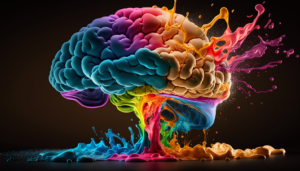The Surprising Link Between Social Isolation and Cognitive Impairments: What You Need to Know
Reinforcing the Importance of Social Connections during the Pandemic
As human beings, we have always known the importance of keeping in touch with our friends and family – but since the pandemic hit us hard, this significance has been reinforced. With social distancing being a necessity for everyone’s safety, it is natural that people become more isolated from each other. We know all too well how loneliness can affect one psychologically; yet recent research indicates that isolation may worsen memory impairments as well as cause other behavioral changes. Keep reading to learn more about the surprising link between social isolation and cognitive impairments.
Investigating the Most Abundant Brain Cells’ Role in Social Isolation-Induced Cognitive Impairment
Astrocytes, the most populous brain cells, are now being intensely researched to uncover their role in social isolation-induced cognitive impairment. The impacts of social detachment on neurons is already well known; however, astrocytes additionally offer vital energy and nutrients that support neuron functioning and neural plasticity. Thus far researchers have uncovered a wide spectrum of results regarding the influence of these robust brain cells.

How Social Isolation Affects Astrocytes in Mice
Scientists investigating mice in social isolation have determined that this kind of extended solitude can lead to changes within astrocytes and reduced levels of glutamate, a neurotransmitter essential for learning and memory. Published in Nature Neuroscience, the study findings suggest that these alterations caused by social isolation result in cognitive impairments.
How Social Isolation Shapes Connections with Neurons
A recent investigation conducted in the Journal of Neuroscience revealed that social isolation is connected to astrocyte structure. Researchers discovered that mice who were socially isolated had fewer branchings and connectors with neurons compared to those living in a group. This discovery implies that a lack of socialization can shape astrocytes, which may result in decreased neuronal support as well as cognitive impairments.
A Study Linking Social Isolation to Cognitive Decline in Elderly Adults
It is not just animal studies that link social isolation to cognitive deficits. An empirical study published in JAMA Psychiatry concluded that loneliness and lack of companionship are associated with a greater chance of developing dementia among elderly adults. The study was conducted over twelve years, meticulously observing more than 12 thousand senior citizens – the results revealed those who were lonely or socially disconnected had 40% higher risk for getting dementia compared to their counterparts. According to Dr Donovan Maust, the lead author on this research project: “Our investigation demonstrates how tackling isolation and loneliness can be essential steps towards reducing danger levels of acquiring dementia.”
The Link Between Social Isolation and Anxiety and Depression
According to a study published in Scientific Reports, social isolation can manifest itself through various behavioral changes such as heightened anxiety and depression. The researchers observed that the isolated mice exhibited considerably more anxious behavior and decreased sociability. Further investigation revealed these effects were due to alterations in astrocyte gene expression brought about by their solitary lifestyle.
How Social Isolation can Lead to Chronic Diseases
Social isolation can produce more than just cognitive and behavioral alterations; it also has the potential to damage physical health. A recent study appearing in the Proceedings of the National Academy of Sciences found that social seclusion can cause inflammation, increasing a person’s odds for developing serious chronic diseases such as cancer or heart disease. The lead researcher on this project, Dr. Steve Cole stated “It is evident that social interactions have an effect on our immune system, and thus bare witness to how loneliness may interfere with one’s body’s capacity to manage inflammation.”
The Significance of Staying Connected with Friends and Family to Promote Mental Health and Well-being
Ultimately, social seclusion can result in physical and mental repercussions including memory loss, behavior problems and learning deficits. While we don’t yet have a clear understanding of the connection between sociability and cognitive damage, studies point to astrocytes – the most substantial brain cell– as having a major part to play. It is essential to remain connected with our dearest family and friends for our mental health and wellbeing. As Dr. Maust declared, “Strategizing ways to combat loneliness and social isolation can be a key factor in lowering the possibility of developing dementia.” So let’s all make an effort to stay linked with those we adore, despite these testing times!




I am currently writing a paper that is very related to your content. I read your article and I have some questions. I would like to ask you. Can you answer me? I’ll keep an eye out for your reply. 20bet
Yes, we have replied. What is your paper about?